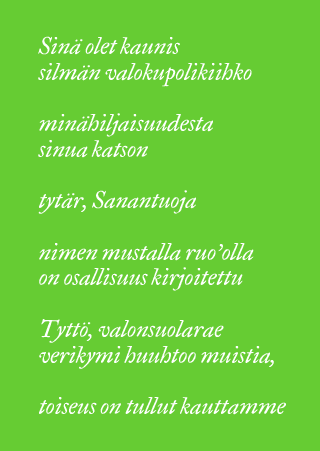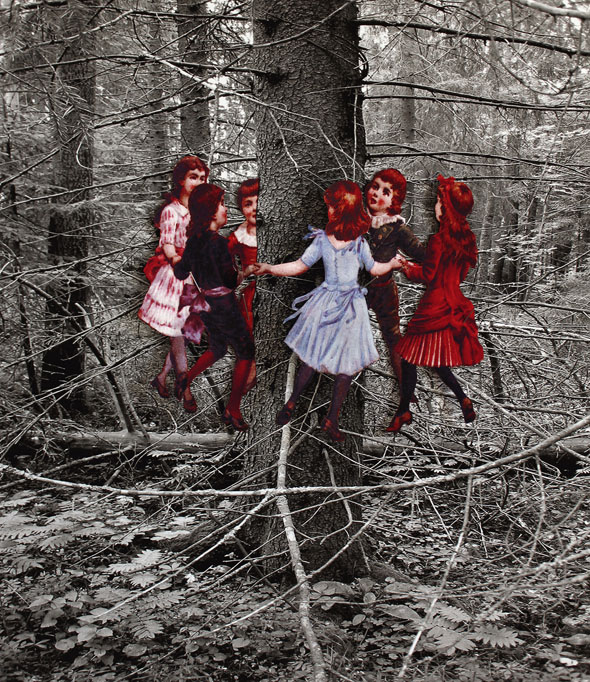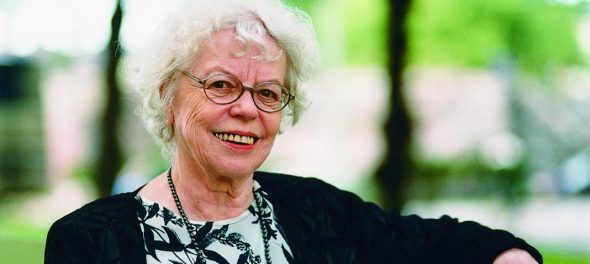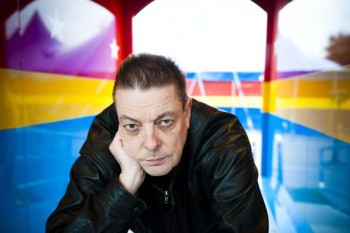Search results for "jarkko/2011/04/2010/05/song-without-words"
An eye of the unseen
30 June 2007 | Archives online, Fiction, poetry
Poems and aphorisms by Aaro Hellaakoski. Introduction by Pertti Lassila
Evening
How tranquilly the evening’s darkening,
dusk deepening beneath the trees.
Consult the long alleyways of the skies
for the gift of this evening
and the cause of your ease.
But the waste! the pain and stress –
those reachings into secrets of the dark –
quarrying endlessness,
plummeting bottomlessness,
quizzing every question mark.
Why this rummaging into whence and why?
Empty let’s be. Open and free.
Let secrets come, or let them fly
away, diffuse like cloudscapes
or whisperings through a tree.
Eyes must glow as your spirits peer
through a wakeful cranny in where you are.
Only the silent have ears to hear.
When the doorstep feels the touch of a toe
only the vigilant’s door is ajar.
Huojuvat keulat (’Swaying prows’, 1945) More…
How Real is a Dead Person?
30 September 1979 | Archives online, Fiction, Prose
An Extract from the Novel Sirkus (‘Circus’). Introduction by Pekka Tarkka
Once again I seem to be moving towards a deeper understanding of these people who figure in my recollections, most of whom, by now – by this particular Friday I am now experiencing – are already dead. And this, in its turn, sets me wondering about the degree of reality, if any, that they can claim to possess. How real is a dead person? Is he, perhaps, totally unreal? In memories, of course, he is real to the extent that the memories themselves are real. But objectively, independently of memory? But here a sadness comes over me, many-headed, hard to take hold of.
And in any case I think it is time I came to a clearer understanding of the economic circus founded by my grandfather Feodisius. Uncle Ribodisius has also already made the front pages of the newspapers, and the Bilbao has published an interview.
But I have left a picture unfinished. Father’s cardboard boxes! The separation from Dianita – and from the children! And I have broken off in the middle of these curious memoirs of mine. Thinking of which, I find myself grinding to a halt again, stuck with Yellow-Handed Fred and Haius and Desmer, Lesmer and Sesmer – until I realize that instead of coming to a clearer understanding of my grandfather’s economic circus, I am on Lesmer’s estate, one evening in late May – a couple of months ago – listening to the trilling of an unusually talented song-thrush. Perched on the top of a tall spruce, he goes through the repertoire of all the other birds he has ever heard, both native and foreign – creating, however, new combinations of his own; not content with mere mimicry, he rattles, croons, wails, whistles, whirrs, twitters, flutes, sighs, chirrups and shouts his way through a complete set of variations on themes provided by the rest of the bird world: like some rather advanced medieval chronicler who, no longer content to record faithfully (if perhaps chaotically, as Auerbach points out) what he saw, heard, thought and smelt, had begun to create personal shapes and entities – thus preparing the way for the greatest miracle in the history of world literature, the advent of the perceptive reader. More…
Mothers and sons
30 March 2008 | Archives online, Fiction, Prose
Extracts from Helvi Hämäläinen’s novel Raakileet (‘Unripe’, 1950. WSOY, 2007)
In front of the house grew a large old elm and a maple. The crown of the elm had been destroyed in the bombing and there was a large split in the trunk, revealing the grey, rotting wood. But every spring strong, verdant foliage sprouted from the thick trunk and branches; the tree lived its own powerful life. Its roots penetrated under the cement of the grey pavement and found rich soil; they wound their way under the pavement like strong, dark brown forearms. Cars rumbled over them, people walked, children played. On the cement of the pavement the brightly coloured litter of sweet papers, cigarette stubs and apple cores played; in the gutter or even in the street a pale rubber prophylactic might flourish, thrown from some window or dropped by some careless passer-by.
The sky arched blue over the six-and seven-storey buildings; in the evenings a glimmer could be seen at its edges, the reflection of the lights of the city. A group of large stone buildings, streets filled with vehicles, a small area filled with four hundred thousand people, an area in which they were born, died, owned something, earned their daily bread: the city – it lived, breathed….
Six springs had passed since the war…. Ilmari’s eyes gleamed yellow as a snake’s back, he took a dance step or two and bent over Kauko, pretending to stab him with a knife. More…
Sound and meaning
20 January 2012 | Essays, Non-fiction

Harri Nordell’s poem from Huuto ja syntyvä puu (‘Scream and tree being born’, 1996)
Translating poetry is natural, claims Tarja Roinila; it is a continuation of writing it, for works of poetry are not finished, self-sufficient products. But is the translator the servant of the meaning – or of the letter?
I am sitting in a cafe in Mexico City, trying to explain in Spanish what valokupolikiihko, ‘light-cupola-ecstasy’, means. And silmän valokupolikiihko, ‘the light-cupola-ecstasy of the eye’.
I take to praising the boundless ability of the Finnish language to form compound words, to weld pieces together without finalising the relationships between them, never mind establishing a hierarchy: the eye is a light-cupola, the eye is ecstatic about light-cupolas, light creates cupolas, the cupola lets out the light, the eye, in its ecstasy, creates a light-cupola. More…
For the love of a city
31 December 2004 | Archives online, Fiction, Prose
Extracts from the novel I väntan på en jordbävning (‘Waiting for an earthquake’, Söderströms, 2004). Introduction by Petter Lindberg
Nonna Rozenberg lived quite near the special school where I was a boarder, in a block nine stories high with a bas-relief to the right of the door. This bas-relief featured a fairy-tale figure – the Firebird or the Bird Sirin.
I often saw Nonna stepping out of a tram carrying a large brown case. She moved carefully, as if afraid of falling.
She played the cello, and resembled that bulky, melodious instrument herself. Women’s figures are often compared to guitars. But Nonna’s appearance never hinted at parties at home with parents away or singsongs around the camp-fire.
She was no beauty. Her slow, precociously mature body was neither graceful nor girlishly delicate. If I’d met her later, when I was working at a gym, I’d have said she was overweight and lacking in self-discipline. More…
Blocks and locks
30 June 2008 | Archives online, Essays, On writing and not writing
For the writer, not being able to write is just one of the profession’s occupational hazards, says the author Eeva Kilpi. She recalls a particularly debilitating attack of the affliction, and offers suggestions for escaping it
I had no idea I was currently suffering from writer’s block until I was asked to describe the condition.
Now I feel – as I sit at my oId, muscle-powered, Facit typewriter – that a horror of words is the first and normal reaction every time I have to begin a piece (let alone a book). Words dart into hiding like a frightened flock of birds that has barely settled to rest. (And now I hear successful, prolific colleagues rushing to explain how easy it is to use a computer to correct mistakes and move entire paragraphs even from one chapter to another, but I am paralysed by the very thought of a flickering screen, ready and waiting, and of the fateful key by pressing which one may destroy an entire immortal manuscript, as I have heard has happened to some people.) More…
Ulla Jokisalo & Anna Kortelainen
Pins and needles
11 May 2011 | Essays, Non-fiction
In these pictures by Ulla Jokisalo and texts by Anna Kortelainen, truths and mysteries concerning play are entwined with pictures painted with threads and needles. Jokisalo’s exhibition, ‘Leikin varjo / Guises of play’, runs at the Museum of Photography, Helsinki, from 17 August to 25 September.
Words and images from the book Leikin varjo / Guises of play (Aboa Vetus & Ars Nova and Musta Taide, 2011)

‘Ring dance’ by Ulla Jokisalo (pigment print and pins, 2009)
Relative values
31 March 2004 | Archives online, Fiction, Prose
Extracts from the autobiographical novel Nurinkurin (‘Upside down, inside out’, WSOY, 2003). Interview by Anna-Leena Nissilä
The soldier rides on a scarf
waving a donkey
‘Now it’s your turn to go on,’ says my brother on the back seat, turning his head toward the window so that he can concentrate on his poetic muse.
Father looks in the mirror, wrinkling his face in pain. ‘The object, in other words, is of no significance to you. What happened to your case endings and your grammar?’
From the back seat we shout eagerly: ‘The poet has special privileges which are not accorded to others.’
Father shakes his head: ‘You can be creative, but silly content and broken language do not make poetry.’
‘Oh yes they do. Don’t disturb our creative spirit. When you speak, our connection with her is broken. Don’t cut off the source of our inspiration.’ More…
The Othello of Sand Alley
31 March 1989 | Archives online, Drama, Fiction
Eeva-Liisa Manner’s Woyzeck is an independent ending to Georg Büchner’s fragmentary play. Introduction by Riitta Pohjola
PROLOGUE
(Dawn in the market square of Leipzig. A gallows looms, dimly visible in the distance. Brisk rumble of drums.)
1st WOMAN
What’s going on here?
1st MAN
They’re getting ready for an execution. Some villain’s going to be executed in public.
1st WOMAN
Who?
2nd WOMAN
Franz Woyzeck. I guess you know him, the barber. More…
The return of Orpheus
31 December 1992 | Archives online, Fiction, poetry
from Hid (‘Coming here’, Söderströms, 1992). A Valley in the Midst of Violence, a selection of poems by Gösta Ågren translated by David McDuff, was published by Bloodaxe Books of Newcastle-upon-Tyne in 1992. Introduction by David McDuff
No poet can endure
being dead, a sojourn without
meaning and method. He needs
order and rhythm. His poems
are really laws. He
always turns back
from the underworld, which resembles
the everyday.
The darkness hides the screams
around him, when
the way begins. The sun is
only black heraldry, only
a cavern in the sky
of stone, and he sees
it, without being blinded. More…
We’re all perfect
31 December 1990 | Archives online, Fiction, poetry
Poems from Laki (‘The law’, 1990)
The Law
No one’s stupid – there are
people deprived of the wise,
and those with self-respect
knocked flat. No one’s
hardened – there are people with
calloused wounds.
No one’s blind – there are
people cataracted by custom. Be different:
heal wounds and look up – wake
your dear one in mid-sleep, hug her.
(We’re all perfect.) More…


